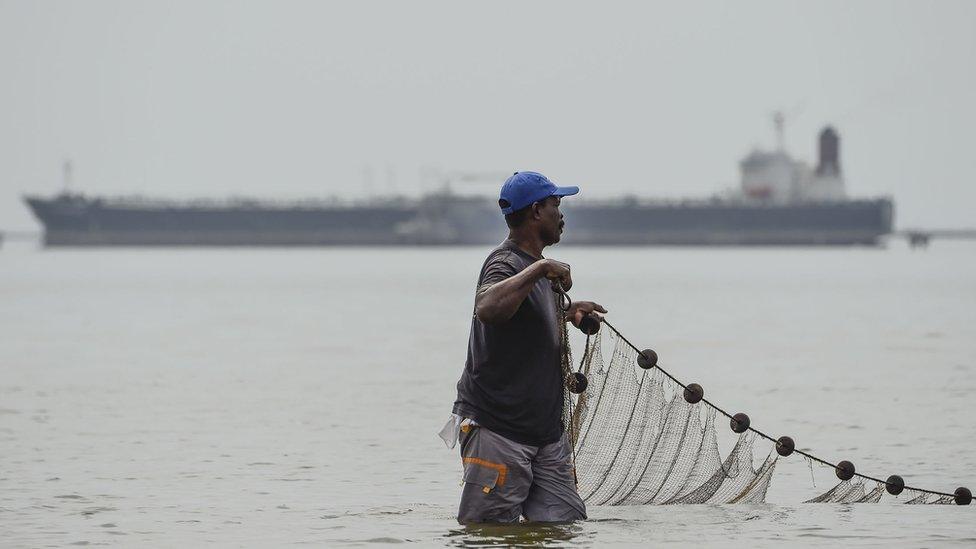Deepening divisions: Venezuela's haves and have nots
- Published
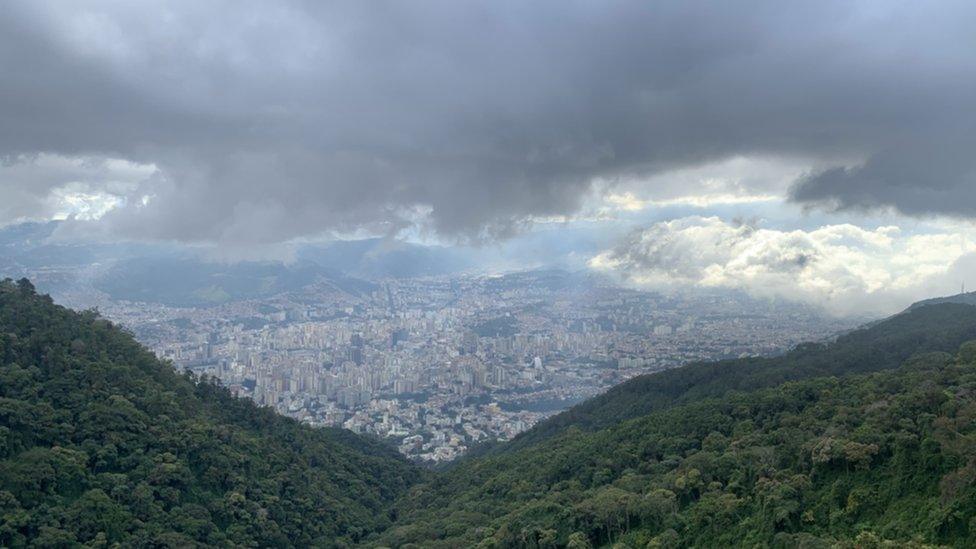
The Hotel Humboldt sits atop El Ávila, a national park overlooking Venezuela's capital, Caracas.
At more than 2,000m (6,500ft) above sea level, you have to take a 20-minute trip in a cable car to the top of the mountain to reach it.
From there, a golf buggy drives guests along the ridge to an impressive glass and aluminium structure surrounded most of the day by rolling clouds that suddenly clear to reveal the most astounding view.
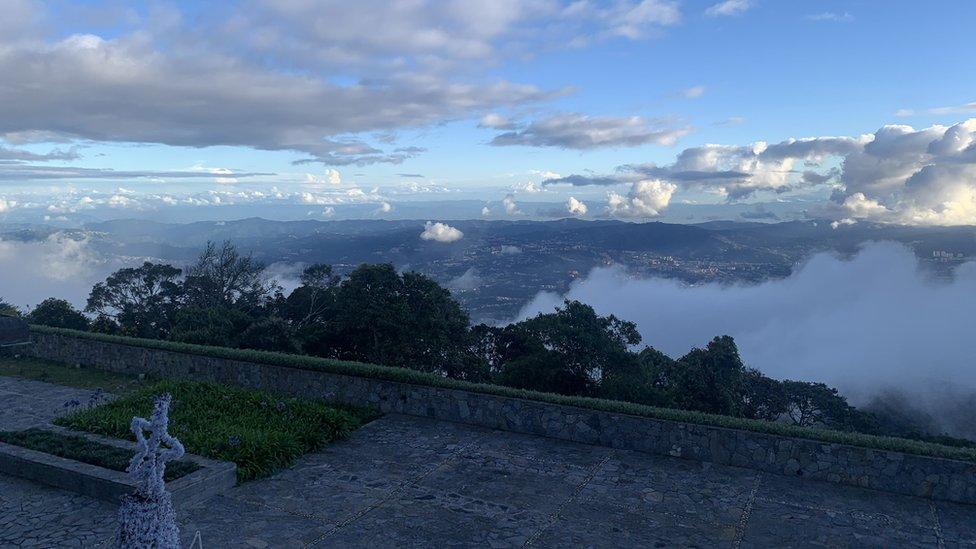
The hotel boasts stunning views but getting supplies there is costly
The hotel was built in 1956. Finished in less than 200 days, it was the pet project of dictator Marcos Pérez Jiménez, who ruled Venezuela from 1950 to 1958.
At a time of great oil wealth, it was a show of pomp and modernity.
National icon
It operated as a hotel for just a few years before falling into disrepair, but it has remained an icon, one that the late President Hugo Chávez wanted to restore to its former glory. After his death in 2013, his successor, Nicolás Maduro, has been intent on finalising the restoration.
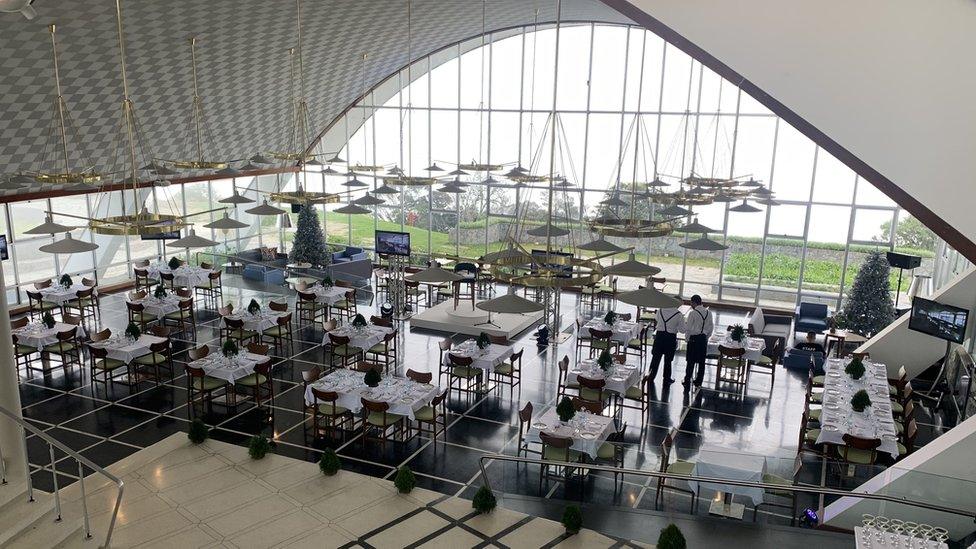
For most Venezuelans, a dinner at the hotel is well out of reach on their meagre salary
"This building means so much for the Venezuelan people," says Carlos Salas, one of the hotel's managers.
He shows me around the hotel, which has just started accepting overnight guests after nine years of renovations.
"It's a representation of a golden era for Venezuela."
But that golden era is long gone.

Read more about Venezuela's crisis:

The economy is in crisis, oil prices have slumped as has production and around 60% of Venezuelans now live in poverty, according to researchers at the Andrés Bello Catholic University.
Financially sound or a folly?
A stay at the Hotel Humboldt costs around $300 (£225) a night.
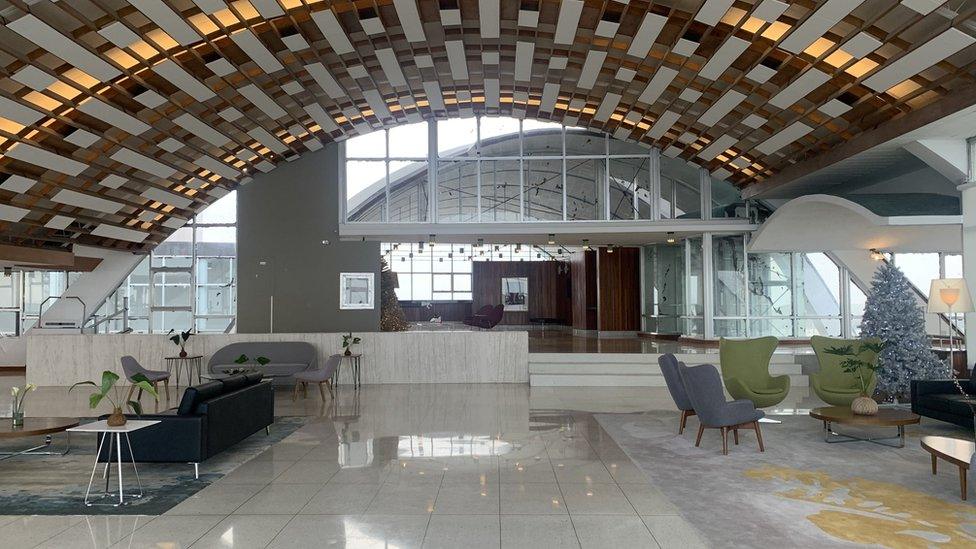
The hotel was built in the 1950s but was recently renovated
Clearly a lot of hard work has been put into restoring this architectural jewel but it is not your typical five-star lodgings. Indeed, the classification was awarded by the government which is promoting it, and the hotel is still a bit rough around the edges, despite having been inaugurated a month ago.
The Marriott hotel chain was given the concession to run it in 2018 but it did not stay long as partner. The team now in place is clearly proud of its achievements but in crisis-hit Venezuela, the hotel's restoration feels like a folly, promoted by a president with his head buried in the sand.
"One banana here costs triple the price [elsewhere]," Mr Salas says, explaining the logistical challenges of getting supplies up the mountain to the hotel.
"My people here, we have to pay them more, the maintenance of the building, water, electricity, it's really difficult."
So what, I ask, is the demand for a hotel like this, in a country where the minimum wage is around $2 (£1.50) a month.
He responds without flinching, arguing that five-star hotels are not within everyone's reach anywhere in the world. Venezuela is no different, he says.
Emerging elite
The hotel is seen by many as a symbol of the rise of a group of newly wealthy Venezuelans, in particular those who have become rich thanks to their close ties to the government.
And Hotel Humboldt is not the only sign of an economic revival in Venezuela.
Faced with US sanctions, rampant hyperinflation and a spiralling economic crisis, President Maduro responded by removing the price controls and easing the capital controls introduced by his predecessor and fellow socialist, Hugo Chávez.
With the local currency increasingly hard to come by due to the sky-high inflation rate - a cup of coffee with milk can set you back almost 1.5m bolivars in Caracas - Mr Maduro also begrudgingly accepted the use of the US dollar.
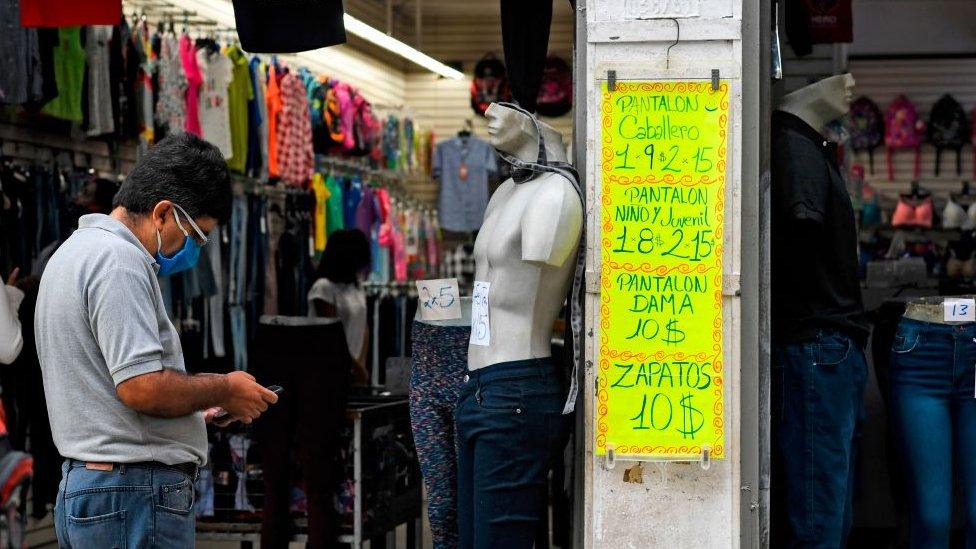
Many shops now only accept dollars
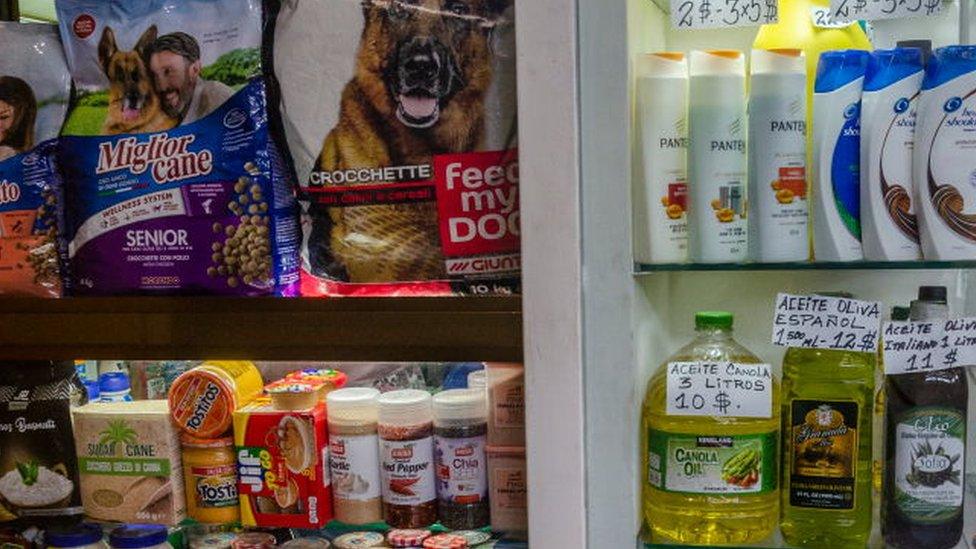
Imported goods can be bought - at a price and often only in dollars
The result of this easing of economic restraints can be seen across Caracas, where new "bodegas" (shops) have opened up, selling all sorts of imported goods to people long-used to shortages of even the basics.
The Caracas stock exchange is another beneficiary, booming because of an uptick in private enterprise, although it is still comparatively small.
A brighter future?
It has made life a bit more bearable for many, especially in this toughest of years, but not everyone is positive about these changes.
"The government is building on the ashes of this wrecked economic model in a very disorganised fashion," says economist Tamara Herrera.
"This re-accommodation of the economy is amorphous, disorganised and positive results are difficult to judge. This won't mend the tragedy that you can see in the population," she argues.
And there is no doubt that while there may be an emerging class of haves, there are still plenty of have nots - those with little or no access to dollars, or basic services.
In the poor neighbourhood of Catia, on the outskirts of Caracas, I met former housekeeper Diurka González, who is helping out in a soup kitchen. Every day, the kitchen provides lunches for as many as 140 children, including her two-year-old daughter.
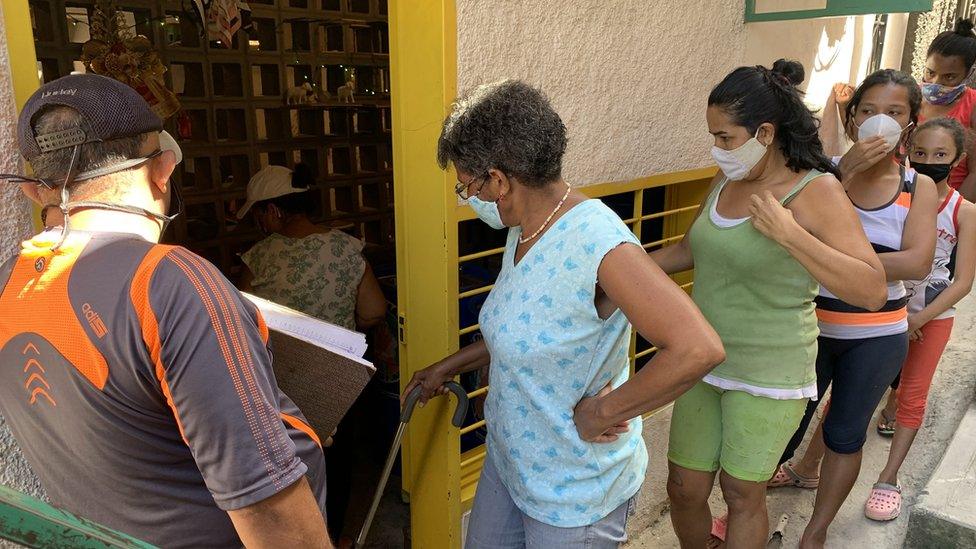
Many Venezuelans are relying on soup kitchens for their main meal
"My boss couldn't keep me on because she was scared of the pandemic," Ms González tells me.
She did not even earn $2 a month, but now she gets nothing. The soup kitchen allows her daughter to eat one decent meal a day.
Hard realities
A few doors down, Jonathan Fermenal is feeding his two-year-old daughter Samara with the lunch they have just picked up from the soup kitchen. He relies on the free lunches for Samara and his other two children.
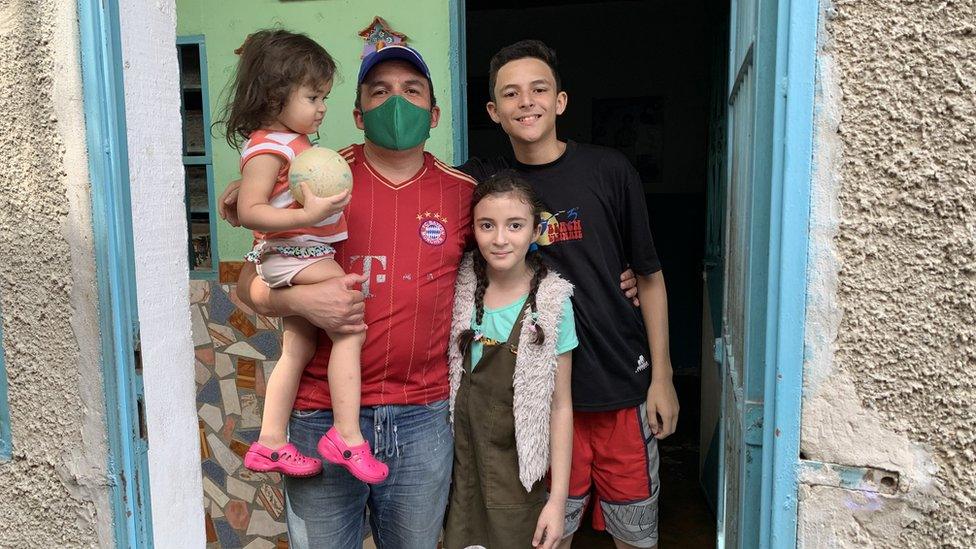
Jonathan Fermenal is looking after his children on his own after his wife left to find work in Colombia
Mr Fermenal's wife, Laila, left to find work in Colombia at the beginning of the year.
The plan was for the rest of the family to follow a few months later, but then came the coronavirus pandemic. They have not been able to see her since.
"At the beginning, it was horrible, horrible," he says about his wife's departure. "My youngest was 18 months old, she was still breastfeeding and had to stop suddenly. The first month, I didn't sleep at all."
Mr Fermenal has had to learn to play the role of both mother and father. "For my wife it's also been hard, everything is done by Whatsapp, a photo here, a voice message there, but it's not the same," he says.
"And the way I live is how thousands and thousands of Venezuelan families are living," says Mr Fermenal about the more than five million Venezuelans who have left to escape their home country's economic hardships over the past six years.
Lives - and hardships - that are far more common than those who invested in the Hotel Humboldt would like to believe.

You may want to watch:
Coronavirus: Venezuelans struggling with fuel shortage
Related topics
- Published7 December 2020
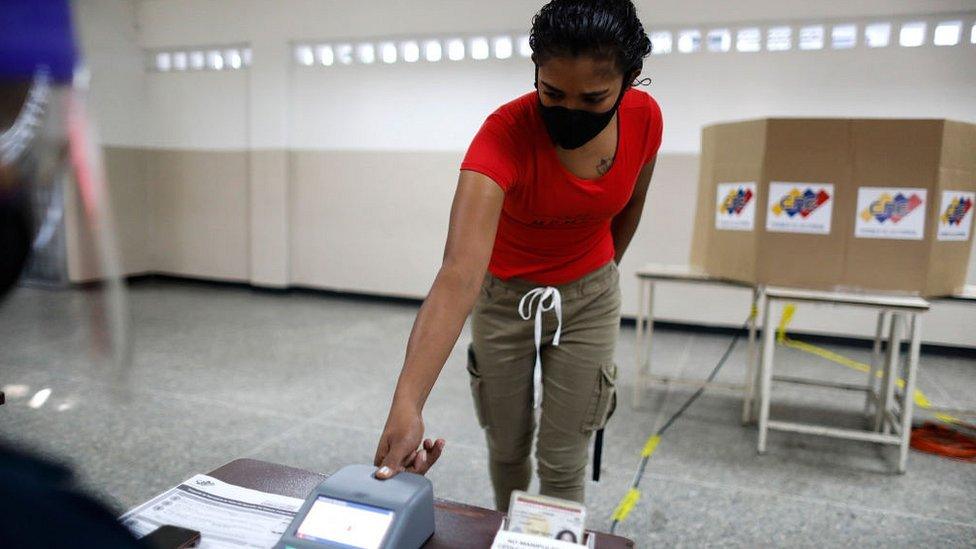
- Published27 November 2020

- Published24 October 2020
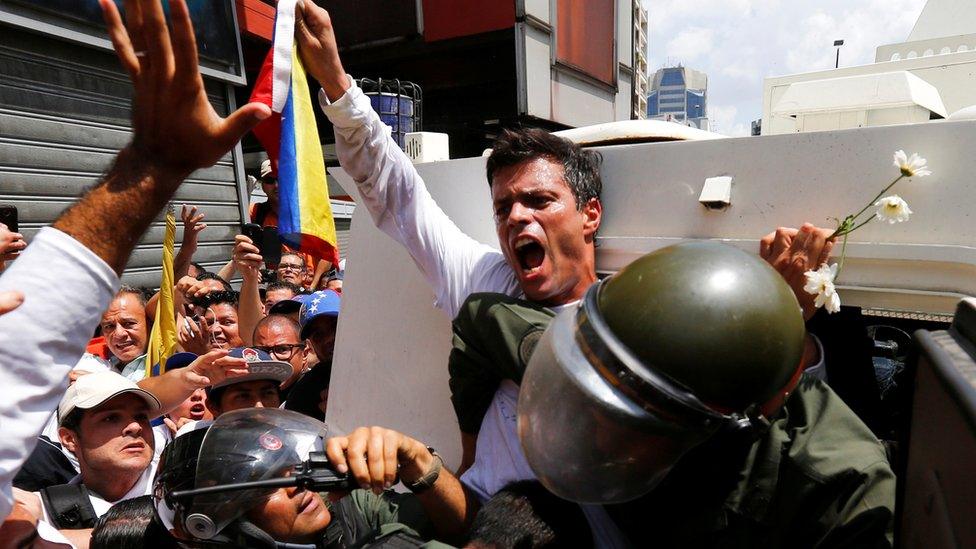
- Published5 October 2020
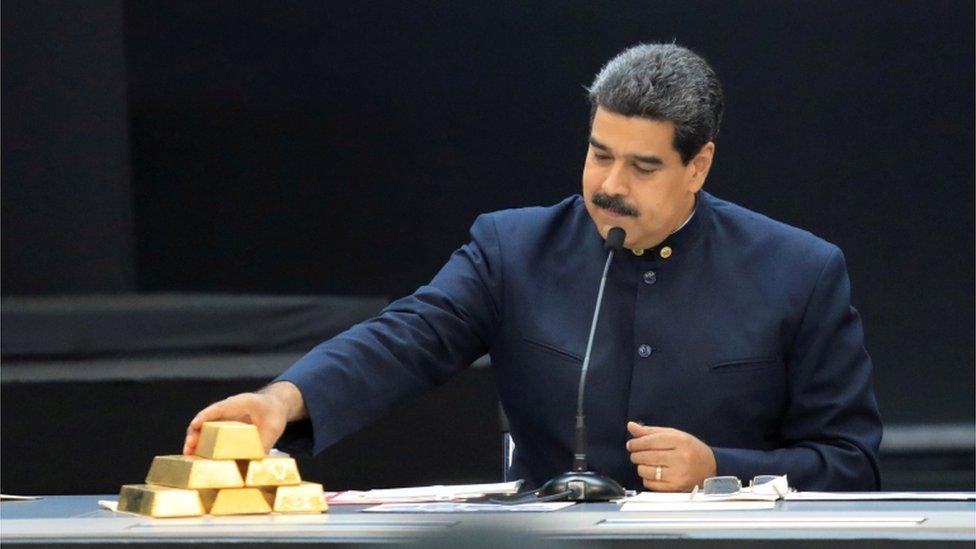
- Published16 September 2020
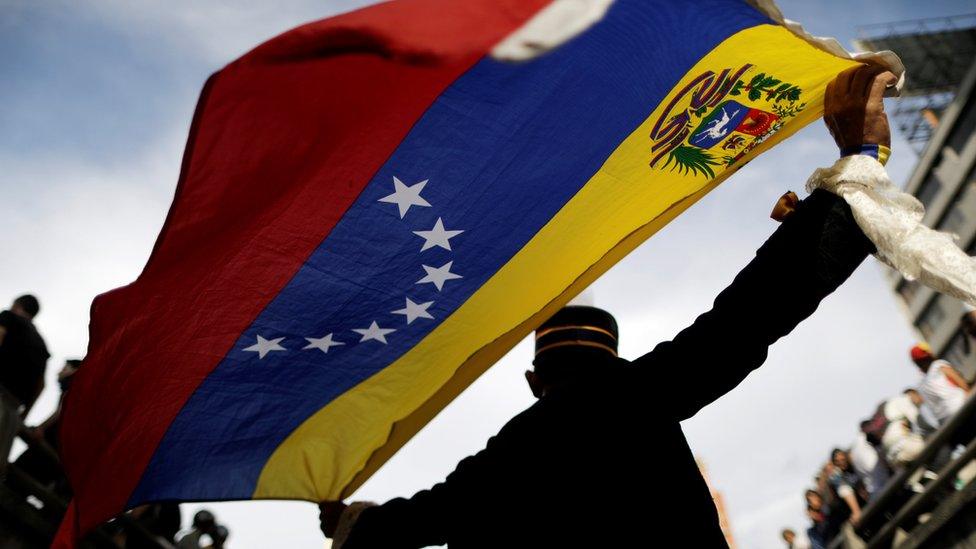
- Published14 August 2020
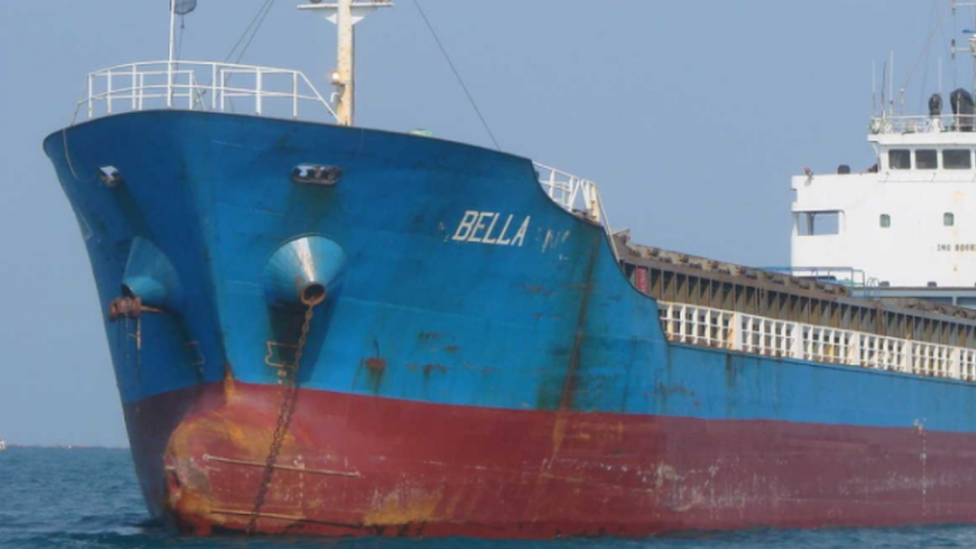
- Published25 May 2020
